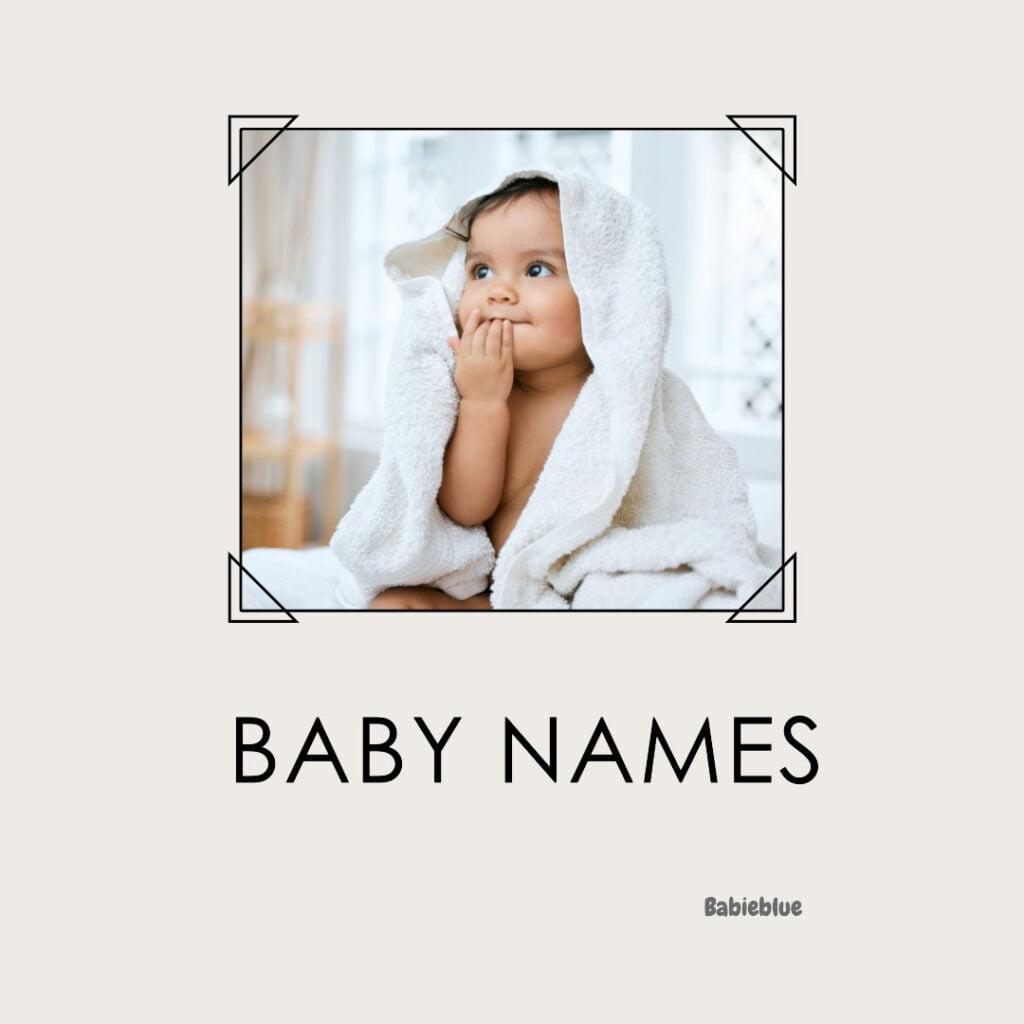Choosing a name for your child is one of the most important decisions you will make as a parent. Your child's name will be a part of their identity for the rest of their life, influencing their self-image, how others perceive them, and even their future opportunities. With so much at stake, it's no wonder that many parents feel overwhelmed when it comes to choosing a name.
The Ultimate Guide to Baby Names is here to help. In this comprehensive guide, we will walk you through every step of the naming process, from understanding the different types of names to exploring naming trends and strategies. Whether you're looking for a traditional name or something unique and trendy, this guide has something for everyone.
We will delve into the world of baby names, exploring different categories like traditional names, modern names, celebrity names, mythological names, nature-inspired names, and international names. We will also cover important considerations like gender-neutral names, twin and sibling names, middle names, and even numerology. Additionally, we will provide tips on avoiding common naming mistakes and navigating the process of changing a name.
By the end of this guide, you will have all the information and inspiration you need to choose the perfect name for your child. So let's get started and explore the wonderful world of baby names!
Introduction to Baby Names - The Importance of Choosing the Right Name
Choosing a name for your baby is a big responsibility, but it can also be a fun and exciting process. In this chapter, we will explore the importance of choosing the right name for your child and the impact that a name can have on their life.
A name is often the first thing people learn about you, and it can shape how others perceive you. For children, a name can influence their self-image and self-esteem. Studies have shown that children with unique or unusual names may experience social difficulties and even discrimination. On the other hand, children with more common or traditional names may feel a sense of belonging and familiarity.
Additionally, a name can also have an impact on a child's future opportunities. Employers, teachers, and other authority figures may make assumptions or judgments based on a person's name. Some studies have even suggested that names can affect a person's success in certain industries or fields.
When choosing a name for your child, it's important to consider all of these factors. You want to choose a name that your child will be proud to carry throughout their life and that will serve them well in name While it's important to consider the impact that a name can have on your child's life, it's also important to choose a name that you and your partner love. Your child's name should reflect your family's values, culture, and personality.
Before choosing a name, consider what you want it to represent. Are you looking for a name with a particular meaning or significance? Do you want a name that is easy to pronounce and spell? Are you drawn to names with a particular sound or style?
It's also important to think about how the name will sound with your last name. Does it flow well? Is it easy to say together? Consider saying the full name out loud to see how it sounds.
Another consideration is how the name will be abbreviated or shortened. Will your child go by a nickname? Is there a potential for teasing or mispronunciation with the shortened name?
Ultimately, choosing a name for your child is a personal decision. There is no right or wrong choice, as long as it's a name that you and your partner love and that your child will feel proud to carry. In the following chapters, we will explore different types of names and strategies for choosing the perfect name for your child.
Traditional Baby Names - Honoring Family and Culture
For many families, choosing a traditional name that honors their cultural or family roots is important. Traditional names often have deep meaning and history behind them, and can provide a sense of connection to one's heritage.
One popular tradition is to name a child after a beloved family member, such as a grandparent or great-grandparent. This can be a way to honor the family member's legacy and keep their memory alive. In some cultures, it's also common to name a child after a particular saint or religious figure.
Traditional names can also be tied to one's cultural heritage. For example, many Irish names have become popular in recent years, such as Liam, Aiden, and Finn. In addition, names from other cultures such as Spanish, French, Italian, and Scandinavian have gained popularity.
When choosing a traditional name, it's important to consider the spelling and pronunciation. Some traditional names may have multiple spellings or variations, so make sure you choose one that is easy to pronounce and spell. It's also important to consider the meaning behind the name, as it can have a significant impact on your child's personality and future.
Ultimately, traditional names are a wonderful way to honor your family and cultural heritage. They can provide a sense of connection and pride for both you and your child. However, it's important to remember that traditional names may not be for everyone, and there are many other options to consider. In the next chapter, we will explore unique and creative baby names.

Unique and Creative Baby Names - Standing Out from the Crowd
For some parents, a traditional name may not be the right fit for their child. They may want something that stands out and reflects their creative and unique personality. In recent years, there has been a surge in popularity of more unusual and unconventional names.
Unique names can come from a variety of sources. Some parents look to pop culture for inspiration, such as naming their child after a favorite movie character or musician. Others may draw inspiration from nature, such as naming their child after a flower or animal. Some parents even create their own names by combining elements from different names or inventing something entirely new.
While unique names can be fun and creative, it's important to consider the potential drawbacks. Some people may have difficulty pronouncing or spelling the name, and your child may have to constantly correct others. In addition, a highly unusual name could potentially impact your child's future job prospects or social interactions.
If you're considering a unique name, it's important to strike a balance between creativity and practicality. Consider how the name will sound with your last name, and whether it will be easy to pronounce and spell. It's also a good idea to get feedback from friends and family members before making a final decision.
Ultimately, the decision to choose a unique name is a personal one. If it feels right for your child and family, then go for it! In the next chapter, we will explore gender-neutral baby names and their growing popularity.
Gender-Neutral Baby Names - Breaking Down Barriers
In recent years, there has been a growing trend towards gender-neutral baby names. These names are not associated with a particular gender and can be used for both boys and girls. This trend reflects a shift in societal norms towards greater acceptance and inclusivity.
Gender-neutral names can come from a variety of sources. Some are unisex names that have been traditionally used for both genders, such as Jordan or Taylor. Others are names that have been traditionally associated with one gender but are now being used more frequently for the opposite gender, such as Avery or Riley. Some parents even invent their own gender-neutral names by combining elements from different names.
One of the advantages of gender-neutral names is that they can provide a sense of equality and empowerment for both boys and girls. They can also help to break down traditional gender stereotypes and barriers. In addition, gender-neutral names can be practical in situations where the gender of a child is not immediately known, such as during a pregnancy or adoption.
However, gender-neutral names may not be for everyone. Some parents may prefer to choose a name that reflects their child's gender and identity. It's also important to consider the potential challenges that come with a gender-neutral name, such as confusion or mispronunciation.
If you're considering a gender-neutral name, it's important to do your research and choose a name that feels right for your child and family. Consider how the name will sound with your last name, and whether it will be easy to pronounce and spell. It's also a good idea to get feedback from friends and family members before making a final decision.
Ultimately, the decision to choose a gender-neutral name is a personal one. Whether you choose a traditional name, a unique name, or a gender-neutral name, what's most important is that the name reflects your child's individuality and identity.

Classic Baby Names - Timeless and Elegant
While many parents are drawn to unique or modern names for their children, there is also a strong appreciation for classic baby names that have stood the test of time. These names have a timeless elegance and grace that never goes out of style.
Classic names often have a rich history and cultural significance. They may be inspired by literary or historical figures, such as Elizabeth or William. Others may have a religious connotation, such as Mary or David. Many classic names have been used for generations and are often passed down within families.
One of the advantages of classic names is their familiarity and ease of use. They are often easy to pronounce and spell, and are widely recognized and accepted. They can also provide a sense of tradition and continuity, connecting a child to their family and cultural roots.
However, some parents may find classic names to be too common or traditional, and may prefer something more unique or modern. It's important to choose a name that feels right for your child and family, regardless of trends or popularity.
If you're considering a classic name, it's important to do your research and choose a name that has meaning and significance for you. Consider the origin and history of the name, and whether it has any special cultural or family significance. It's also a good idea to consider how the name will sound with your last name and whether it will be easy to pronounce and spell.
Ultimately, the decision to choose a classic name is a personal one. Whether you choose a traditional name or something more unique, what's most important is that the name reflects your child's individuality and identity.
Unusual Baby Names - Standing Out from the Crowd
For some parents, the idea of giving their child a common or traditional name just doesn't feel right. They want their child's name to be truly unique and one-of-a-kind, something that will set them apart from the crowd. This is where unusual baby names come in.
Unusual names can come from a variety of sources. Some parents may choose a name that is rare or unconventional, such as Xanthe or Axl. Others may look to nature, mythology, or other cultures for inspiration, such as Phoenix or Odin. Some parents even invent their own names by combining letters or sounds in unique ways.
One of the advantages of unusual names is their distinctiveness and individuality. They can make a child feel special and unique, and can even become a conversation starter or a memorable aspect of their identity. However, it's important to consider the potential challenges that come with an unusual name, such as pronunciation or spelling difficulties.
If you're considering an unusual name, it's important to do your research and choose a name that feels right for your child and family. Consider the origin and meaning of the name, and whether it has any special significance or symbolism. It's also a good idea to consider how the name will sound with your last name and whether it will be easy to pronounce and spell.
Ultimately, the decision to choose an unusual name is a personal one. Whether you choose a traditional name or something more unique, what's most important is that the name reflects your child's individuality and identity.
Gender-Neutral Baby Names - Breaking Down Stereotypes
In recent years, there has been a growing trend towards gender-neutral baby names, as more and more parents look to break down traditional gender stereotypes. These names are not specifically associated with a particular gender, and can be used for children of any gender identity.
Gender-neutral names can come from a variety of sources. Some are surnames that can be used as first names, such as Taylor or Parker. Others are nature-inspired names, such as River or Sage, or names that have a more abstract meaning, such as Phoenix or Justice.
One of the advantages of gender-neutral names is their inclusivity and versatility. They can be used for children of any gender identity, and can help to break down traditional gender stereotypes. They can also provide a sense of uniqueness and individuality.
However, it's important to consider the potential challenges that come with a gender-neutral name. Some people may have preconceived notions about the gender associated with certain names, which can lead to confusion or misunderstandings. It's also important to consider how the name will sound with your last name and whether it will be easy to pronounce and spell.
If you're considering a gender-neutral name, it's important to do your research and choose a name that feels right for your child and family. Consider the origin and meaning of the name, and whether it has any special significance or symbolism. It's also a good idea to consider how the name will sound with your last name and whether it will be easy to pronounce and spell.
Ultimately, the decision to choose a gender-neutral name is a personal one. Whether you choose a traditional gendered name or something more inclusive, what's most important is that the name reflects your child's individuality and identity.
Naming Your Baby After a Family Member - Honoring Your Roots
Naming a baby after a family member is a time-honored tradition that can help to honor and celebrate your family's roots. Whether it's a grandparent, great-aunt, or even a more distant relative, choosing a family name can be a meaningful way to connect with your family history and pass on your family's legacy.
When choosing a family name, it's important to consider the person you're naming your child after and their significance to your family. You may choose to name your child after a beloved relative who has passed away as a way to honor their memory, or after a living family member who has had a significant impact on your life. You may also consider using a variation of the family name, such as a middle name or a different spelling.
One of the advantages of choosing a family name is its emotional significance and personal connection to your family's history. It can be a way to celebrate your family's traditions and values, and to honor the important people in your life.
However, it's important to also consider any potential challenges that may come with a family name. Your child may be compared to the person they are named after, or may feel pressure to live up to their legacy. It's also important to consider how the name will sound with your last name and whether it will be easy to pronounce and spell.
If you're considering a family name, it's important to have open and honest conversations with your family members and to choose a name that feels right for your child and family. You may also want to consider alternative names or combinations that honor your family's legacy in a unique way.
Ultimately, the decision to choose a family name is a personal one. Whether you choose to honor your family's legacy or go in a different direction, what's most important is that the name reflects your child's individuality and identity.
Choosing a Name with Meaning - Finding Significance in Your Baby's Name
Choosing a name with meaning can add a special layer of significance to your child's identity. While many names have origins in different cultures and languages, choosing a name based on its meaning can give your child a sense of purpose and intentionality.
When choosing a name with meaning, it's important to consider the specific meaning and whether it resonates with your values and beliefs. For example, if you value strength and resilience, you may choose a name that means "warrior" or "survivor". If you value creativity and imagination, you may choose a name that means "artist" or "dreamer".
Another consideration is the origin and cultural significance of the name. You may choose a name that reflects your cultural heritage or one that celebrates a different culture that you admire.
It's important to also consider the sound and flow of the name, as well as its spelling and pronunciation. While a name may have a beautiful meaning, it's important that it's also easy to pronounce and spell to avoid confusion and frustration for your child.
Choosing a name with meaning can be a wonderful way to create a deeper connection with your child and to set them on a path towards a purposeful and intentional life. By choosing a name that reflects your values and beliefs, you can help to shape your child's identity and inspire them to live a meaningful and fulfilling life.
In the next chapter, we'll explore the trend of gender-neutral names and how they're changing the landscape of baby names.
The Rise of Gender-Neutral Names - Breaking Down Traditional Gender Stereotypes
In recent years, there has been a growing trend towards gender-neutral names, as parents seek to break down traditional gender stereotypes and embrace more fluid expressions of gender identity.
Gender-neutral names are names that are not exclusively associated with either male or female gender, and can be used for individuals of any gender identity. Examples of gender-neutral names include Avery, Jordan, Cameron, Taylor, and Alex.
There are many reasons why parents may choose a gender-neutral name for their child. For some, it's a way to challenge traditional gender norms and promote gender equality. For others, it's a way to give their child more flexibility and freedom in expressing their gender identity.
Gender-neutral names are also becoming more common in the workplace and in social settings, as people seek to create more inclusive and welcoming environments for individuals of all genders.
However, choosing a gender-neutral name can also come with its own set of challenges, such as confusion over pronouns and gender identity. It's important for parents to have open and honest conversations with their child about gender identity and to respect their child's preferred pronouns and gender expression.
Ultimately, the rise of gender-neutral names reflects a broader cultural shift towards greater acceptance and inclusivity of diverse gender identities. By breaking down traditional gender stereotypes and embracing more fluid expressions of gender identity, we can create a more accepting and supportive society for all individuals.

The Influence of Popular Culture on Baby Names - From Celebrities to Fictional Characters
Popular culture has a significant impact on the names that parents choose for their children, from celebrities to fictional characters. The names of popular figures can serve as inspiration for parents, while the characters in movies, TV shows, and books can also influence the names that parents choose.
One example of the influence of popular culture on baby names is the trend of naming children after celebrities. For instance, the name "Beyonce" has become increasingly popular in recent years, likely due to the influence of the famous singer and performer. Similarly, the names of popular actors and actresses, such as Emma Stone and Ryan Gosling, have also seen an uptick in popularity.
Fictional characters can also have a significant impact on baby names. The name "Arya", for example, has become more popular in recent years due to the popularity of the character Arya Stark in the hit TV series Game of Thrones. Similarly, the name "Hermione" saw a surge in popularity following the release of the Harry Potter books and movies.
However, it's important to consider the potential downsides of choosing a name based on popular culture. While a name may seem trendy and cool at the moment, it may not age well and could become outdated in the future. Additionally, a name that is too closely associated with a particular celebrity or fictional character may be difficult for a child to wear as their own unique identity.
When considering a name inspired by popular culture, it's important to strike a balance between being unique and meaningful while also avoiding potential pitfalls and cliches.
In the next chapter, we'll explore the trend of using unusual spellings for traditional names and the impact it can have on a child's identity.

The Trend of Unusual Spellings for Traditional Names - Creativity or Confusion?
In recent years, there has been a trend of using unusual spellings for traditional names, such as "Kaitlyn" instead of "Caitlin" or "Emmaleigh" instead of "Emily". While this trend may be seen as a creative way to make a traditional name more unique, it can also lead to confusion and potential issues for the child as they grow up.
One issue with unusual spellings is that they can be difficult to spell and pronounce. This can lead to frustration for both the child and those around them, as they constantly have to correct and explain their name. Additionally, unusual spellings may not be recognized by official institutions, such as schools and government agencies, which could lead to issues with identification and documentation.
Another potential issue with unusual spellings is that they can create a sense of disconnection from the traditional meaning and origins of a name. A name with an unusual spelling may no longer carry the same historical or cultural significance as the traditional spelling, and may instead be viewed as a made-up or trendy name.
While creativity in naming can be a positive thing, it's important to consider the potential long-term impact of choosing an unusual spelling for a traditional name. Parents should weigh the desire for uniqueness against the potential confusion and complications that an unusual spelling may cause.
In the next chapter, we'll explore the impact of naming trends on gender identity and the ways in which gender-neutral names are becoming more popular.
Gender-Neutral Names - Breaking Down Gender Stereotypes in Naming
In recent years, there has been a growing trend of gender-neutral names. These are names that are not specifically associated with a particular gender, such as "Jordan", "Avery", or "Taylor". This trend has been driven in part by a desire to break down traditional gender stereotypes in naming and to give children more options for expressing their gender identity.
Gender-neutral names are not a new concept, but they have become more popular in recent years. This trend may be influenced by broader societal conversations about gender identity and the need to create more inclusive and accepting environments for people of all genders.
One potential benefit of gender-neutral names is that they can give children more freedom to express themselves without feeling confined by traditional gender roles. This can be especially important for children who may not identify with the gender they were assigned at birth, or who may feel restricted by traditional gender norms.
Another benefit of gender-neutral names is that they can help to break down gender stereotypes in society more broadly. By creating more diverse and inclusive naming options, we can challenge the idea that certain names are only appropriate for certain genders.
Of course, there are also potential downsides to gender-neutral names. Some people may feel that these names are too unconventional or confusing, and they may struggle to understand or accept them. Additionally, some people may worry that gender-neutral names could lead to confusion or misunderstandings in certain situations, such as on official documents or in social settings.
Overall, the trend of gender-neutral names reflects a broader shift in society towards greater acceptance and inclusion of people of all genders. While there may be challenges associated with this trend, it ultimately represents a positive step towards a more diverse and accepting world.
Naming After Historical Figures - Honoring the Past
Many people choose to name their children after historical figures, whether they are famous politicians, artists, scientists, or other figures who have had an impact on society. These names can be a way of honoring the past and paying tribute to those who have made a difference in the world.
Naming a child after a historical figure can also provide a sense of connection to the past, and can help to instill values and ideals that were important to that figure. For example, someone who names their child after civil rights leader Martin Luther King Jr. may hope to instill a commitment to social justice and equality in their child.
However, there are also potential downsides to naming a child after a historical figure. It is important to carefully consider the impact of that figure and their legacy, as well as the potential for controversy or negative associations. For example, someone who names their child after a controversial political figure may face criticism or opposition from others who disagree with that figure's views or actions.
Furthermore, it is important to remember that historical figures are complex and multifaceted, and may have had flaws or made mistakes along with their achievements. It is important to be aware of these complexities when considering a name based on a historical figure.
Ultimately, the decision to name a child after a historical figure should be a personal one, based on careful consideration of that figure's impact and legacy, as well as the potential benefits and drawbacks of such a name. It can be a meaningful way to honor the past and inspire the future, but it should be done with thoughtfulness and care.
Unique Names - Embracing Individuality
In recent years, there has been a trend towards more unique and unconventional baby names. Many parents are choosing to give their children names that are uncommon, creative, or even invented.
There are a number of reasons why someone might choose a unique name for their child. Some may want to celebrate their own creativity and individuality, while others may want to give their child a name that stands out and sets them apart from the crowd. Unique names can also be a way of expressing cultural or personal identity, as well as reflecting the changing cultural landscape of our society.
However, there are also potential downsides to giving a child a unique name. It may be difficult for others to pronounce or spell, which can cause frustration or confusion for the child. It may also lead to teasing or bullying from peers who do not understand or appreciate the name.
Furthermore, it is important to consider the long-term impact of a unique name. While it may seem fun or trendy in the moment, it may become burdensome or embarrassing for the child as they grow older and enter different social and professional contexts. It may also impact their ability to be taken seriously or to fit in with mainstream society.
Ultimately, the decision to give a child a unique name should be based on careful consideration of the potential benefits and drawbacks, as well as the long-term impact on the child's life. It can be a way of celebrating individuality and expressing identity, but it should be done with thoughtfulness and care.

In conclusion
choosing a name for a child is a deeply personal and meaningful decision that will shape their identity and impact their life in countless ways. There is no one-size-fits-all approach to naming a child, and every family will have their own unique considerations and priorities. Whether it is a traditional family name, a name inspired by nature or culture, a name based on a historical figure, or a unique and unconventional name, the most important thing is to choose a name that reflects your values, hopes, and dreams for your child, and that will help them to feel loved, supported, and empowered as they navigate the world around them.
FAQ's
How do I choose a baby name?
Choosing a baby name can be a daunting task, but there are a few things to consider that can help you narrow down your options. Start by thinking about your values and cultural background. Are there any family traditions or names that you would like to honor? Consider the meaning and origin of the names you like. Also, think about the practicalities, such as the potential nicknames and how the name might sound with your last name.
Should I choose a popular or unique baby name?
This ultimately comes down to personal preference. Popular names are familiar and timeless, while unique names can be memorable and reflect individuality. Keep in mind that popular names may lead to your child sharing their name with classmates or colleagues, while unique names may require more explanation or spelling. Consider what is important to you and your partner when making this decision.
Can I change my baby's name after they are born?
Yes, it is possible to change your baby's name after they are born, but it varies depending on the country and state. Some places have a time limit for changing the name, while others require a court order. It's best to research the laws in your area and speak with a legal professional if you're considering changing your baby's name.
Can I choose a unisex name for my baby?
Absolutely! Unisex names are becoming increasingly popular, and many names have a neutral or flexible gender identity. It's important to consider how a unisex name might be perceived by others and how it might affect your child's identity and sense of self.
How do I handle family members who want to name my baby?
This can be a delicate situation, but ultimately, the decision of what to name your baby is yours and your partner's. Be respectful of your family members' opinions, but don't feel pressured to choose a name that you don't love. Consider suggesting that your family members choose a middle name or find another way to honor their preferences.
What if I can't decide on a baby name?
Don't worry, it's normal to feel overwhelmed or undecided when choosing a baby name. Take your time and keep exploring different options until you find a name that feels right. Consider using a baby name book or website, seeking inspiration from literature or history, or even consulting with a baby naming expert. Remember, the most important thing is to choose a name that you and your partner love and that feels meaningful to your family.
